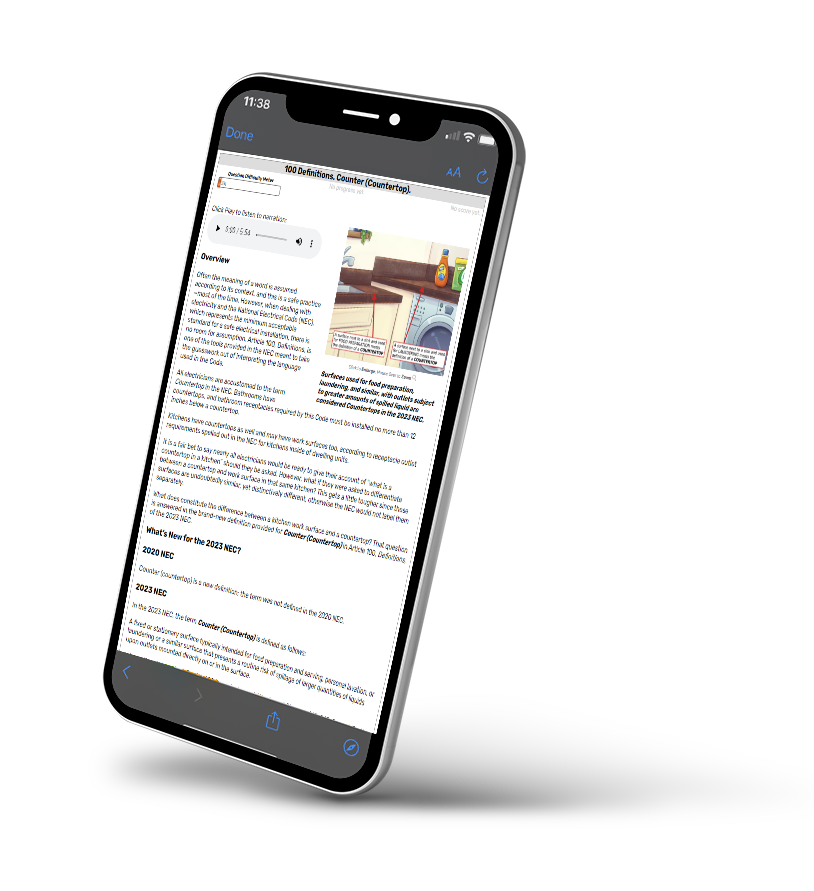Preparing for an Electrical Exam

By: Dave Varga | Apr 07, 2022
When it comes to taking an electrical exam, not all states are the same. State exams vary in length, content, Code cycle, and format. Some states require a separate business and law exam, while other states may include those questions in their exam. State statutes, laws, rules, and fire alarm questions can also be a part of an exam. Below are important steps that you can take to improve your chances of passing this difficult exam.
The Application Process
To take a state electrical exam, first you need to apply. This application is on your state’s website and usually is referred to as the “state board of electrical examiners” or, simply search electrical contractor or master electrical exam in your state. There are usually various levels of electrical exams. Make sure you know the details of each electrical license. Choose the license that is a best fit for you based on your experience and contracting needs. Sometimes, the more difficult unlimited license is not needed at this point and a lesser license is a good place to start.
When applying, you will need to pay a fee that may range from $60 to $300. You will also be asked to supply the state or testing agency with various documents, such as signed and notarized experience forms, character statements, and other background information. The state or their designated testing agency will review the documents and let you know which exam to take.
Once approved, you usually have 90 days or up to one year to schedule your exam. When a state outsources their testing to companies like PSI or Pearson Vue, you don’t need to report to your state’s licensing board to test. Using these other agencies allows you to test remotely at approved sites and out of state sites, when needed. Go to your state’s website to review the application process, levels of licensure, or to download a Candidate Bulletin. This is the first step, and sometimes it is not the easiest step.
Daily Exam Preparation
During the application process, it is a good idea to begin studying regularly. Make sure you review the information provided by your state or testing agency. You may need to purchase additional books that you are allowed to bring to the exam. Some common books are the National Electrical Code (NFPA 70), The National Fire Alarm and Signaling Code (NFPA 72), and the National Association of State Contractors Licensing Agencies – Contractors Guide (NASCLA Contractors Guide to Business, Law, and Project Management).
You may also need to review your state-specific laws and rules regarding electrical contracting. Every state is different, and it is important to be familiar with what is on the exam and what materials are allowed into the exam. Either way, begin reviewing the various articles in the National Electrical Code as the process begins to move forward. Once you have been approved to take the exam, figure out how much studying you will need and an ideal date to take the exam. Some people may need a few weeks to prepare while others may need months.
In addition to studying alone, contact an exam preparation company that is familiar with your state’s exam content. This in-person or online class should be scheduled to conclude just days prior to your exam.
Final Exam Preparation
At this point, you know how long you have to complete the exam, the required passing score, and what books are permitted on site the day of the exam. You have logged many hours studying alone, but you need more detailed instruction. You will need the help of an exam preparation instructor/company. The instructor should be able to provide direction on how and what to study. You will need to know how much time is to be spent on the “look up” type questions. You will receive important instructions on how to navigate the Code book and when to use the Table of Contents versus the Index. The time saved successfully navigating the Code book to answer questions leaves you extra time to use for the calculation questions. Many of the calculation questions are not calculated while working as an electrician in the field. This makes the calculations portion of the exam a little harder; but, with the proper instruction they can be mastered.
An instructor that is familiar with your exam can also provide guidance on other parts of the exam, such as fire alarm, business and law, and state statutes. It is not necessary to know everything about all subjects. You shouldn’t be focused on trying to get a 100% on the exam or getting the highest grade that day. Think of the exam as pass or fail only. Some people might not pass the exam on the first try and that’s okay. Typically, after a thirty-day waiting period, you can take the exam again and at that point you are more ready than ever to pass this exam.
Exam Preparation and More
Make sure you search to find a professional that can help you prepare for this exam. The instructor or company is a crucial part of this process. They can give you guidance about every part of the exam, including what to do the night before the exam, the day of exam procedures, and so much more. Whether your exam is weeks or months away, you can begin studying today with the help of JADE Learning, exam preparation, various electrical courses, and electrical continuing education.

